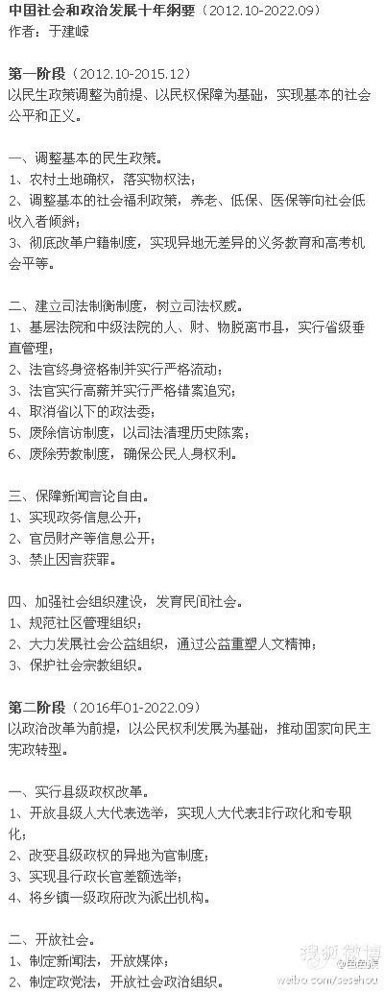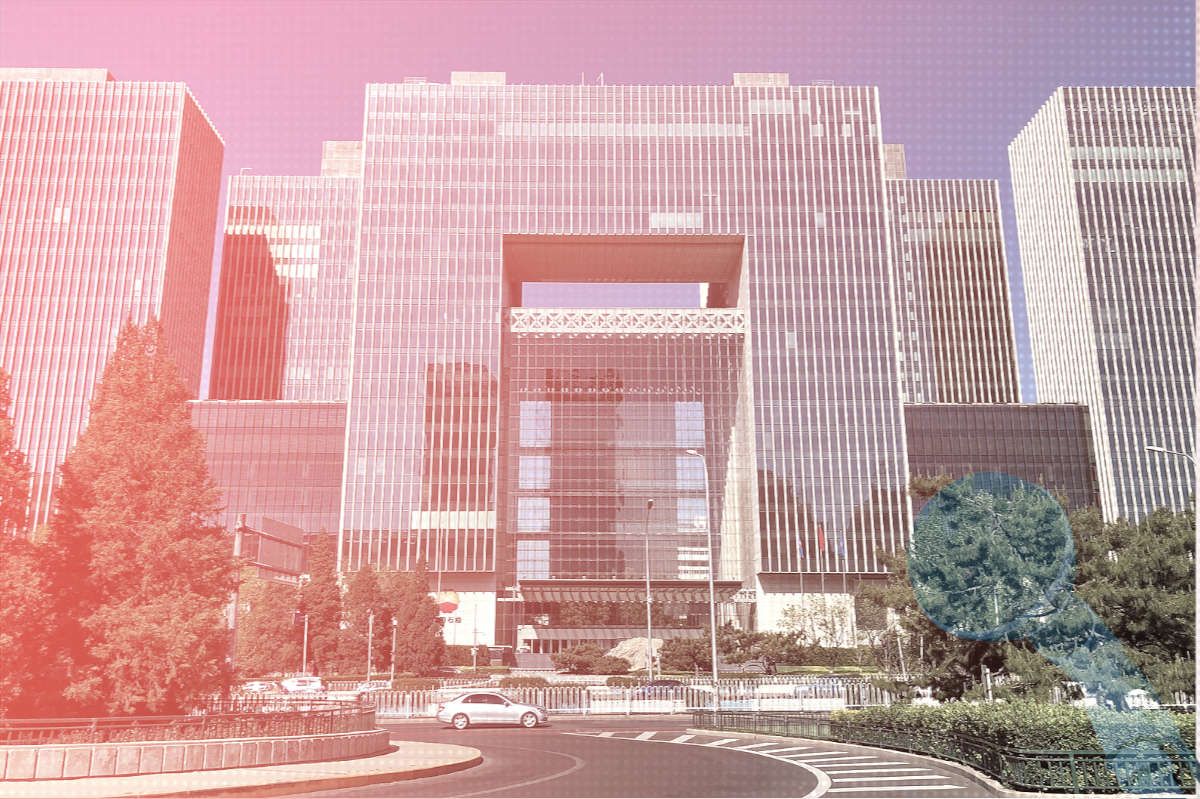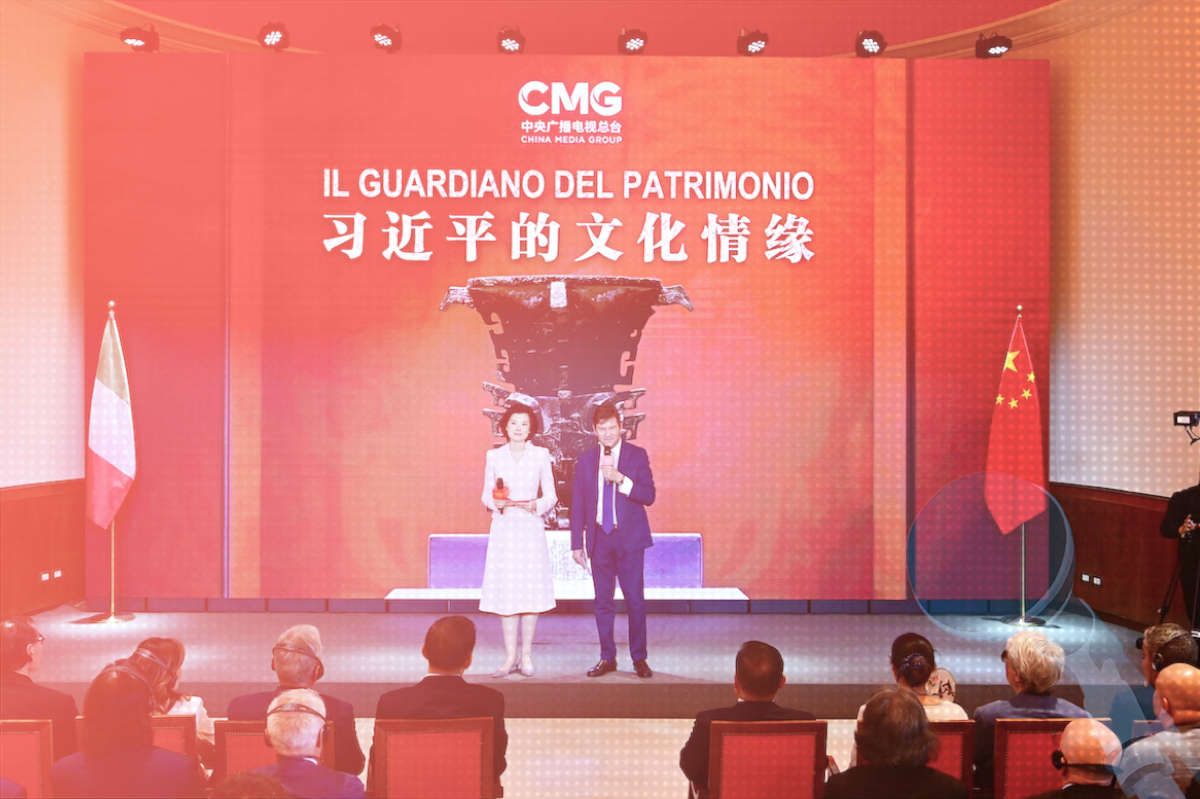Yu Jianrong (于建嵘), one of China’s most outspoken intellectuals, yesterday posted a ten-year plan for social and political development in China on his Tencent microblog account. The plan called for a three-year initial phase of concerted social and judicial reforms, including the abolishment of the petitioning and household registration systems, followed by a second phase of political reforms moving China toward constitutional democracy.
Yu’s plan gives readers a general idea of many of the concrete changes proposed in China by pro-reformers under the auspices of “political reform”.
A translation of the general outline for Yu Jianrong’s plan follows. The original text-as-image file posted to Tencent Weibo follows the translation:
Ten-Year Outline for Social and Political Development in China (October 2012 to September 2022)
Author: Yu Jianrong
First Phase (October 2012 to December 2015)
Achieving basic social equality and justice, with the adjustment of public welfare policies as the premise and the protection of people’s rights as the foundation.
1. Adjustment of public welfare policies
i. Clarifying rights to rural land, implementing the Property Law;
ii. Adjusting basic social welfare policies (社会福利政策), extending pensions, unemployment, health insurance and such to low-income members of society;
iii. Thoroughly reform the household registration system, instituting compulsory education (义务教育) and equality of higher-education testing across all regions without discrimination.
2. Build a judicial system of checks and balances, establishing legal authority
i. Detach the personnel, finances and property of inferior courts and intermediate courts from cities and counties, instituting a system of direct jurisdiction by the provinces;
ii. Institute a system of lifetime tenure for judges with strict [stipulations on] mobility;
iii. Institute a system of high salaries for judges, strictly following up on mishandled cases;
iv. Abolish politics and law committees below the provincial level;
v. Abolish the petitioning system, resolve long-standing cases through the judicial system;
vi. Abolish the re-education through labor system, ensuring the personal rights of citizens
3. Ensure freedom of speech and freedom of expression
i. Achieve openness of government affairs
ii. Make public the assets of officials and other information
iii. Strictly prohibit incrimination through speech (因言获罪)
4. Strengthen the building of social organizations, foster civil society development
i. Regulate community management organizations;
ii. Energetically develop social welfare organizations, using welfare to re-mold the humanistic spirit;
iii. Protect social and religious organizations
Second Phase (January 2016 to September 2022)
Promoting the transition of the country to constitutional democracy, with political reform as the premise and civil rights as the foundation.
1. Carry out reform of political power at the county level
i. Open up elections for county-level people’s congresses, instituting a system in which people’s congresses are not administrative or professionalized
ii. Reform the cross-regional system for county-level officials; [NOTE: This system, used in the Ming and Qing dynasties, means placing outsiders in local positions to prevent entrenched resistance to the center and promote the centralization of power.]
iii. Institute differential elections for county-level positions; [NOTE: This means that the number of candidates surpasses the number of posts available.]
iv. Transform township governments into branch organs.
2. Open up society
i. Establish a press law, open up the media;
ii. Establish a Political Parties Law, open up social and political organizations.






















